Francis has called on the Synod Fathers not to give into “conspiracy” and not to act like lobbyists after 13 cardinals and bishops expressed suspicions that the assembly is being “steered” towards an approach of greater openness
Francis has called on the Synod Fathers not to give into “conspiracy” and not to act like lobbyists after 13 cardinals and bishops expressed suspicions that the assembly is being “steered” towards an approach of greater openness
The first day of the Synod was marked by external and internal lobbying which led to “conspiracy” theories. Pope Francis defined them as such a day later, in a surprise statement in the presence of the Synod Fathers. What really happened in the first 24 hours of the Synod, despite Francis’ calls for an evangelical approach guided by faith and his insistence that the discussions between bishops were not to resemble a parliamentary debate?
Right from the very first press briefing, some Synod Fathers were said to be calling into question the agreed working method for the assembly. Vatican Insider has learnt that the accusation was in fact far more serious. Essentially, 13 cardinals and bishops participating in the Synod, suggested that the Synod was in some way being “steered” by the General Secretary (and ultimately by the Pope) so make it so that the Synod went down the openness route. Supporters of the conspiracy theory presented two grievances: one was that the theory that the moderators and rapporteurs in the circuli minores, the language-based discussion groups, were designated by the Secretariat, the choices came from high up that is and could steer the debate. The other grievance was that members of the commission in charge of drafting the concluding document were not elected.
It is interesting to note that for weeks, outside the assembly, other clerics and certain media outlets closely linked to them, had been repeating the same old chorus of the Synod being “rigged” in order to put the Church’s “traditional doctrine” on marriage “at risk”. The boldest statement regarding this, came from Cardinal George Pell, who reiterated the contents of an article published by American magazine First Things, signed with the pseudonym Xavier Rynne II. The 13 Synod Fathers who backed the conspiracy theory then appealed to the Pope.
The response came on Tuesday 6 October. Cardinal Lorenzo Baldisseri, Secretary General of the Synod, was the main figure who intervened, confirming that moderators and rapporteurs in the circuli minores were apparently elected by the Synod Fathers themselves, just like at last year’s Synod and that they were not imposed from above.
Secondly, he pointed out that in previous Synods held under different pontificates, the task of drafting the concluding text traditionally lay with a select group of three to four people from the Synod Secretariat. It was Francis himself who wanted to enlarge this group a year ago, allocating one Synod Father from each continent, raising the number of participants to ten. What happened in October 2014 will happen now. So last year too there was no vote to allocate the members of this commission responsible for drafting the assembly’s concluding report. Supporters of the conspiracy theory made a mistake, confusing this commission with the committee that has the task of communicating the Synod’s message to the world, a brief text (which has moreover been scrapped this year) that has nothing to do with the much bulkier concluding document which gives an account of all speeches made and is voted on by all Synod Fathers before being delivered in the form of a proposal to the Pope.
Essentially, there is no conspiracy at play. After Baldisseri’s clarifying statement, Francis gave a surprise address on Tuesday morning. He was not due to give a speech but it was clear that he wished to respond to the Synod Fathers who had made the conspiracy claims and to their external church and media supporters. Francis used the term “hermeneutics of conspiracy” defining it as“sociologically weak and spiritually unhelpful”. What he meant by this is that this is the complete opposite of the task which the Synod Fathers have been called to perform. It was a call for an end to this mentality which sees plots and conspiracies everywhere. His words attracted applause from the audience.
The Pope also clarified that the two official documents of the 2014 Synod are his two addresses and the concluding report. With this statement of his, he probably aimed to reassure those Synod Fathers who considered Cardinal Peter Erdö’s introductory speech as too closed to any potential debate and further reflection on the administration of the sacraments to remarried divorcees: as if last year’s Synod and the distance covered so far had never existed. Francis also clarified that “Catholic doctrine on marriage has not been touched, no one called it into question in this assembly or in the Extraordinary assembly. It has been preserved in its integrity”. He also urged Synod Fathers not to let themselves “be conditioned or limit” themselves, “seeing the question of communion for remarried divorcees as the only problem”.
An echo of what happened on the first day of the Synod could be heard at yesterday’s press briefing. The Archbishop of Philadelphia, Charles Chaput, stated: “The Holy Father said that to us yesterday morning, that we should avoid thinking of each other as conspiring against one another but to work for unity among the bishops. I think that’s his role in calling us, not just the bishops, but all of us in the Church, to unity and to have trust that God leads the church. At the same time, I’ve never been at a church meeting where there aren’t groups that get together and lobby for a particular direction.”
Vatican Insider


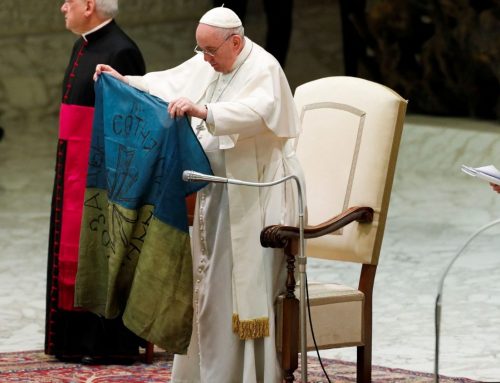
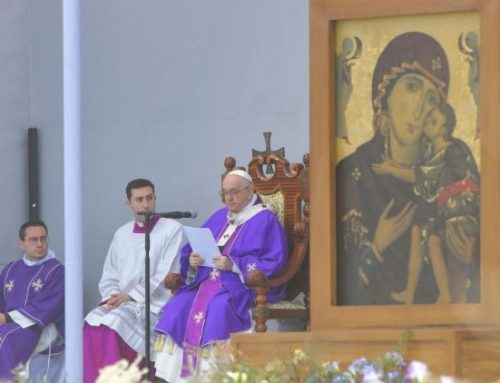
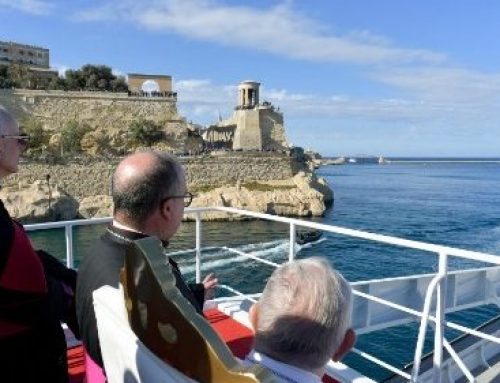
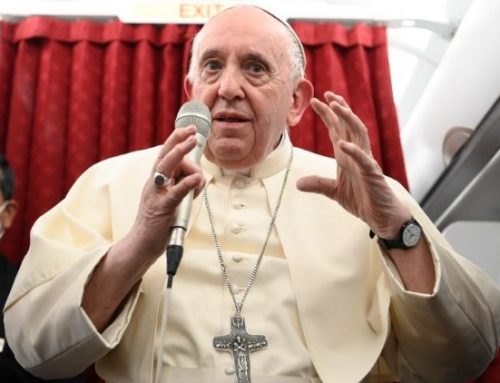
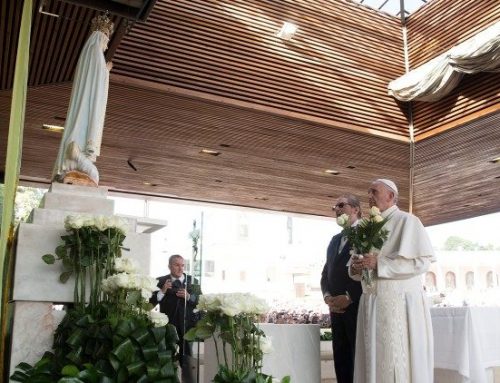
Leave A Comment
You must be logged in to post a comment.